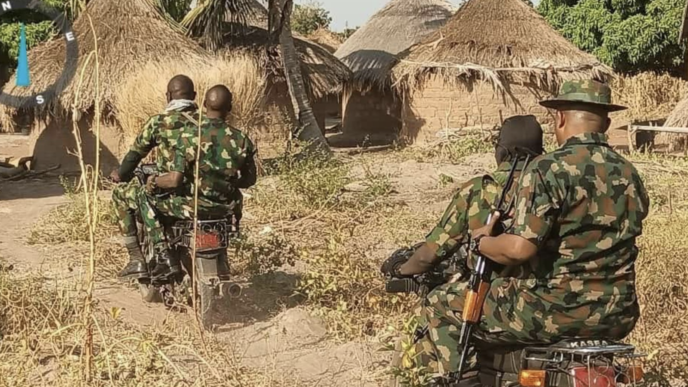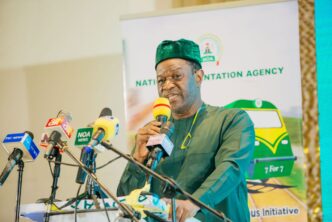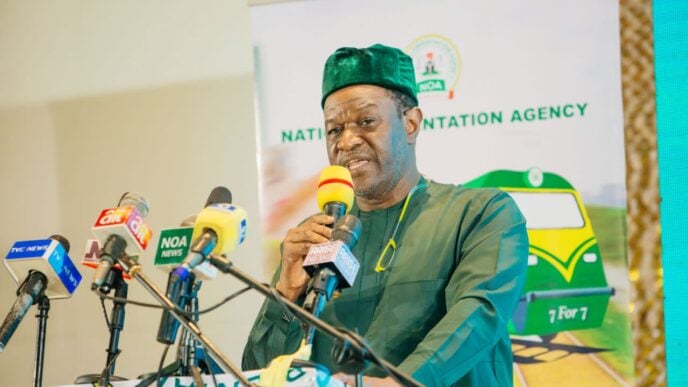BY ADESHOLAMIE SPENSE
If you ask a Nigerian graduate how savings, investments or compound interest works, chances are they will pause, blink and say, “I will Google it.” But the irony is that the same person might be running two side hustles while still having a full time 9 to 5 job in order to save for their rent, which is why it is so sad because we are expected to survive in a money driven world without ever being taught how money really works.
Truthfully, this is not a case of students being lazy or unserious, it is just the result of growing up in a system that never placed importance on financial literacy.
I can tell you for a fact that an average Nigerian is naturally hardworking and loves money. But, from the day we started attending schools, we were trained to memorise and pass exams, not to prepare for how money works in real life. We were taught how to find the value of X that was never missing, draw a food chain, identify types of rocks, memorise the capital of every state, and not to mention the amount of years we spent preparing for WAEC, JAMB and university admission. And really to what end?
Advertisement
In reality, just very few of us were ever taught how to create a monthly budget, track our spending, or understand what interest means when you borrow money from the bank. No teacher ever asked questions like: How much should you save monthly from your pocket money? What happens when you take a loan with twenty percent interest? Or what is the real meaning of inflation?
As someone who had loved the idea of money at a very young age, I finished secondary school without ever learning how to open a bank account. Yet I knew the chemical formula for sodium chloride, I knew the names of all the military presidents in Nigeria and the agricultural zones of the country, but none of that prepared me for the everyday money decisions I now have to make. I mean, all those subjects had their place, but a subject related to money that we use on a day to day basis was nowhere to be found.
Even though subjects like Economics, Business Studies, and Accounting are quite related to money, no one ever addressed how it is applicable in real life which begs the question why profit, loss, and how to draw balance sheets were even taught if no one teaches how to actually keep financial records, budget, or track expenses in real life. We were taught what a bank is, but not how to build a relationship with it.
Advertisement
No one taught us how to build an emergency fund, how to save toward a goal, or how to compare different types of bank accounts, which is why many people still struggle with basic things like knowing the difference between a savings account and a current account, how to avoid unnecessary bank charges, or how to use mobile banking safely. I know it is not that this information is hidden, it was not just taught early enough, and many people only figure it out through trial, error, and frustration.
What is also not talked about enough is the number of students who fall into financial traps simply because no one taught them better. I know people who lost their school fees in fake online investment schemes, I have seen students take quick loans just to buy clothes, phones, or try to keep up with social media pressure, while others get involved in shady deals just to meet up with unrealistic expectations. But the reality is that many young Nigerians are already in financial trouble long before they realise it.
The truth is, students start making money decisions much earlier than we admit. We learnt to save our allowances, borrow money from friends when we are broke, contribute to group projects, and even start side hustles while still in school, just so we can have some extra money at the end of the school year. We went on from there to helping our families with bills, funding our own education through side gigs, and even though many others are just figuring things out on their own, our schools still treat financial literacy like something we will magically learn after graduation. And because of that, many of us are walking into adulthood financially blind.
This is not just about one person making a few poor money choices. But when millions of young Nigerians enter adulthood financially unprepared, the country feels the effect. It means more loan defaults, more people falling into debt traps, more victims of financial scams, and fewer people investing or building sustainable businesses. It also means that the same people who could be contributing to national development are instead struggling just to stay afloat. A financially literate youth population is not just good for individuals, it is good for the economy, as it reduces dependency, increases productivity, and builds long term stability.
Advertisement
If we want a generation that is ready for the future, we need to start early. Financial education should not be a privilege for those who attend expensive schools or have wealthy parents. It should be a basic part of what every student learns before they leave school. We need to make personal finance a subject that is actually taught, not just referenced in passing, which does not also have to be complicated. Even one lesson a week can go a long way. Let students learn how to write a simple budget, how to save small amounts regularly, how to avoid financial scams, and how to think long term. These are life skills, not luxury skills.
Teachers themselves also need support, as many of them were never taught these things either, so it is understandable why they could not pass it on. However, if we want students to learn, we must first train the teachers. We can start by organising workshops, inviting finance professionals to speak in schools, and developing teaching materials that focus on Nigerian realities. It is not helpful to teach students about Wall Street when our parents are traders in Alaba and Balogun markets under the sun. Using realistic naira based examples is going to help us a lot faster and even better. Let us teach students how to save for JAMB forms, how to price goods in a small business, how to separate wants from needs, and how to build a financial habit that grows over time.
Introducing financial literacy into the curriculum is not about turning every student into an accountant or investor. It is about giving them a fighting chance in the real world, because no matter what they go on to study, whether it is law, engineering, mass communication, or creative arts, they will all need to make money decisions. They will need to understand salaries, rent, savings, taxes, and even financial emergencies. If we do not teach them these things now, they will learn them the hard way later.
We cannot build a strong future on financial ignorance, and it is time to stop treating money talk like a taboo. Students deserve more than motivational speeches and survival tactics. They deserve a foundation that helps them make better decisions and what really matters. Let us give them the tools to earn, keep, and grow money wisely. Life after school does not come with a manual, but we can at least give them a map.
Advertisement
Adesholamie Spense, a digital creator, can be contacted via [email protected]
Advertisement
Views expressed by contributors are strictly personal and not of TheCable.










